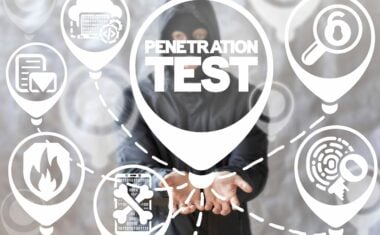Free Cybersecurity Course
Enter the cybersecurity field with our free introductory course. Learn the basics and build a strong foundation.
In the fast moving world of cybersecurity, the pursuit of certifications is not just beneficial—it’s crucial. These credentials serve as a testament to your expertise, much like a Master’s Degree, giving you a distinct advantage in the competitive landscape. From novices just beginning their journey to veterans seeking to polish their skillsets, cybersecurity certifications encompass a broad spectrum of competencies, including systems security, intrusion detection, and cloud security measures.
This guide simplifies the vast array of certification options available, from the Systems Security Certified Practitioner to roles within a Security Operations Center. Whether you’re at the outset of your cybersecurity voyage or aiming to up your skillset, this guide will help you pinpoint the cybersecurity certification that best aligns with your professional aspirations.
Cybersecurity Certifications
CompTIA Security+
You’ve probably already heard of CompTIA Security+ security certification, even if you’re new to the field. It’s considered to be one of the top entry cybersecurity certifications for any new or aspiring security professional as it validates your qualifications for an entry-level cybersecurity position. The exam covers topics such as:
- Attacks, threats, and vulnerabilities
- Architecture and design
- Implementation
- Operations and incident response
- Governance, risk, and compliance
Best for
The recommended experience for people taking the CompTIA Security+ exam is having already passed CompTIA Network+ and having two years of relevant experience in IT administration. You can also study specifically for the exam using online courses or cybersecurity bootcamps with curriculums that are specially designed to prepare you for the certification exam.
How to Get It
You can take the CompTIA Security+ exam at a dedicated test center, or simply sign up to take it online. The exam itself is made up of both multiple-choice and performance-based questions, and you can take it in English, Japanese, Vietnamese, Thai, or Portuguese. The price for the exam is $392.
Springboard has partnered with CompTIA for our Cybersecurity Bootcamp – graduates will receive a CompTIA Security+ Certification which is chosen by more corporations and defense organizations to validate security skills than any other.
GIAC Security Essentials Certification (GSEC)
GIAC offers a range of cybersecurity certifications, starting with the Security Essentials exam. GIAC’s testing style involves the use of CyberLive, a specialized platform that assesses candidates through actual programs, code, and virtual machines. It helps test candidates on their practical skills and validate their capability to perform in a cybersecurity role. The exam covers areas including:
- Access control
- Password management
- Cryptography
- AWS and Microsoft Cloud
- Defensible network architecture
- Incident handling
- Linux fundamentals
- SIEM
- Web communication security
Best For
The GSEC is for security professionals and managers, operations personnel, IT engineers, security administrators, forensic analysts, penetration testers, and auditors. The GIAC offers practice tests to help you study for the certification exam and provides links to various online and in-person training programs designed specifically for the certification.
How To Get It
The exam consists of 106-180 questions, delivered through web-based testing software. The time limit is four to five hours, and you can choose to take the exam in person or online. You can begin the process of scheduling an exam by making a GIAC account.
CyberSecurity Fundamentals Certificate (ISACA)
The ISACA Cybersecurity Fundamentals Certificate offers both an online course and a study guide written by global industry experts. The Fundamentals Lab Package is also available, providing students with an online virtual training environment with exam-relevant labs to complete.
The exam covers the following domains:
- Securing assets
- Information security fundamentals
- Operations and incident response
- Threat landscape
While many resources are available, it’s also possible to register for the exam straight away if you’ve completed your study elsewhere.
Best For
This certificate is great for students and recent graduates, rising IT professionals, and teams and people looking to upskill. The certificate shows that holders have demonstrated their understanding of the principles of cybersecurity. The company also provides in-person team training sessions as an enterprise solution.
How To Get It
Registering at ISACA.org gives candidates access to the paid resources and begins a 12-month period of eligibility for the exam. In other words, if you register before starting your education, you have 12 months to learn everything you need to pass the test. The exam costs $120 for members and $150 for non-members.
Systems Security Certified Practitioner (SSCP) by (ISC)²
The SSCP is an intermediate cybersecurity certification that requires candidates to have one year of paid work experience in an IT security domain to qualify for the exam. This prerequisite can be skipped for graduates with a cybersecurity degree (bachelor’s or master’s). Part-time work and internship can count towards work experience.
Candidates must also agree to support the ISC² Code of Ethics and pay an annual maintenance fee after they have received the certification. The domains covered in the exam include:
- Security operations and administration
- Access controls
- Risk identification, monitoring, and analysis
- Incident response and recovery
- Cryptography
- Network and communications security
- Systems and application security
Best For
This certification is for professionals who already have paid work experience in the field of cybersecurity and are willing to pay an annual maintenance fee of $125. It’s best for people who have already begun and committed to their careers in cybersecurity.
How To Get It
ISC² provides a range of training materials for eligible candidates of the certification, with classroom-based, online instructor-led, online self-paced, and private on-site options. There is also a range of official self-study resources such as textbooks, study guides, a study app, and practice tests.
The first step is to become a member of ISC² and find out if you fit the eligibility requirements. If you don’t have work experience or a degree yet, it is possible to take the exam first and get the experience afterward.
GIAC Certified Incident Handler (GCIH)
This GIAC certification is meant specifically for validating your skills as a first responder in cybersecurity. It ensures you have the knowledge and experience you need to defend against and respond to attacks whenever they might occur.
The topics covered in the exam include incident handling and computer crime investigation, information systems auditing, computer and network hacker exploits, and hacker tools. Similar to the GSEC, this certification uses CyberLive to test candidates’ technical skills in a realistic virtual machine environment that requires the completion of real-world-like tasks.
Best For
This certification is especially important for incident handlers, system administrators, security practitioners, and security architects. However, it’s also useful for any security personnel who participate as first responders during an attack or breach.
How To Get It
The test takes four hours to complete and has 106 questions. It can be taken on-site or online, and you can take practice tests to prepare you for the real thing. There are also various training programs available to assist in preparation. Practical work experience is also encouraged, but not required.
Offensive Security Certified Professional (OSCP)
OffSec or offensive security certified professional (OSCP) offers courses that end with certification exams, including this OSCP certification specializing in penetration testing. Expert instructor-led streaming sessions and access to labs help candidates prepare for the exam at the end of the course. The course also comes with access to an active Discord community that you can rely on while studying for the exam.
A few of the areas covered both on the course and in the exam are:
- Report writing
- Information gathering
- Vulnerability scanning
- Common web application attacks
- Information systems auditing
- SQL Injection attacks
- Client-side attacks
- Antivirus evasion
- Password attacks
- Privilege escalation on
- Windows and Linux
Best For
The course is aimed at anyone transitioning into or pursuing a career in penetration testing, as well as other security professionals. Prerequisites include a solid understanding of TCP/IP networking, reasonable administration experience with Windows and Linux, and familiarity with Bash or Python.
How To Get It
You can purchase the course and certification as a bundle for $1,599. This includes 90 days of lab access and one attempt at the exam. Extra lab access and extra exam attempts can be bought as add-ons if necessary.
Certified Ethical Hacker (CEH)
The CEH is the leading certification for ethical hackers and provides a 20-module course to help candidates master the foundations of ethical hacking. The CEH certifcation modules include:
- Footprinting and reconnaissance
- Scanning networks
- Enumeration
- Vulnerability analysis
- System hacking
- Malware threats
- Social engineering
- Session hijacking
- Hacking web servers
- Hacking mobile platforms
The exam comes in two parts: a 4-hour knowledge exam with 125 multiple-choice questions, and a 6-hour practical exam with 20 scenario-based questions. This intense examination is designed to help you prove your skills and show any employer that you’re qualified for the job.
Best For
Ethical hacking is an important skill for any security professional. Here are just some of the role titles the CEH certification is aimed towards:
- Cybersecurity auditor
- Cyber defense analyst
- Warning analyst
- Network Engineer
- Cybersecurity consultant
How To Get It
This course gives you access to training, the exam, and two additional stages called “engage” and “compete” which involve completing special real-world assignments and competing with other graduates in monthly challenges.
Certified Information Security Manager (CISM) by ISACA
Certified Information Security Manager certification is specially designed to help cybersecurity professionals enter the management track. It’s not only globally recognized but even asked for by many organizations and government agencies. Areas of the exam include:
- Information security governance
- Information security risk management
- Incident management
Security managers focus on ensuring compliance with legal, regulatory, and contractual requirements as well as leading the overall security strategy. In many ways, this requires different skills and areas of knowledge than working as a team member, and this certification proves you have what it takes to move into management.
Best For
As a management certification, the CISM is aimed at established cybersecurity professionals who wish to transition into a team leader role. There are experience requirements for taking the test and becoming certified.
How To Get It
There are multiple paid training resources to help you prepare for the exam, including an online course, a questions and answers database, and a review manual. There’s also a free practice quiz to help you test if you’re ready for the certification. The cost of the exam is $575 for members and $760 for non-members, along with a $50 processing fee. You purchase courses, schedule an exam, or apply for certification by signing up on the ISACA website.
Certified Information Systems Security Professional (CISSP) by (ISC)²
The CISSP is another advanced certification aimed at experienced security practitioners, managers, and executives interested in software development security. It validates your ability to effectively design, implement, and manage an effective cyber-security program. It can help you advance your career and raise your salary to where you want it to be.
Chief information security officer, director of security, IT manager, and security manager are a few of the roles this certification is recommended for. The eight domains covered on the exam are:
- Security and Risk Management
Asset Security - Security Architecture and Engineering
- Communication and Network Security
- Identity and Access
- Management (IAM)
- Security Assessment and Testing
- Security Operations
- Software Development Security
Best For
To qualify for this certification, candidates must have at least five years of cumulative paid work experience in two or more of the eight domains listed above. If you don’t have the full five years of experience, one year can be satisfied with a degree or approved credential. Candidates must also be willing to agree to the ISC² code of ethics and pay a $125 annual maintenance fee.
How To Get It
ISC² offers a wide range of training for the CISSP certification, from online self-paced training to private on-site training. You must become a member to buy training and apply for the exam.
CompTIA Advanced Security Practitioner (CASP+)
The CompTIA Advanced Security Practitioner is a certification meant for experienced cybersecurity professionals who are not yet managers. It validates the advanced skills you need to spearhead the solutions and implementations of policies and frameworks that managers often dictate.
CASP+ covers both security architecture and engineering because the ability to design proper solutions is the main difference between less and more experienced security professionals. Topics include:
- Security architecture
- Security operations
- Governance, risk, and compliance
- Security engineering and cryptography
Best For
This certification can help experienced engineers earn roles like SOC manager and chief information security officer. A full 10 years of hands-on IT experience is recommended. It’s ideal for highly-experienced security engineers who want to remain as individual contributors rather than transition into management.
How To Get It
The test costs $494 and can be taken at Pearson VUE test centers or online. It’s available in English, Japanese, and Thai. There are a number of interactive labs, exam prep courses, study guides, and instructor-led training courses designed for the CASP+, which you can buy when you become a member of CompTIA. As soon as you’re ready to take the exam, you can schedule a date online.
Certified Information Systems Auditor (CISA)
Certified Information Systems Auditor certification is for auditors, and is suitable for both external and internal auditors, as it helps you showcase your expertise in planning, executing, and reporting on audits.
The certification covers multiple areas, from planning audits to executing them and reporting the results. The overall domains included in the training and exam are:
- Information systems and auditing process
- Governance and management of IT
- Information systems acquisition, development, and implementation
- Information systems operations and business resilience
- Protection of information assets
Best For
This certification is best for professional security engineers transitioning into auditing, or dedicated auditors who want to get certified. There are experience requirements you must meet to be eligible for the exam.
How To Get It
Becoming a member of ISACA makes the certification process cheaper: members pay smaller fees for both the exam and all training resources. These resources come in the form of study guides, databases, and online courses. Once you’re ready to challenge the certification exam, simply schedule a day online.
Get To Know Other Cybersecurity Students
Eric Rivera
IAM Security Specialist at Dearborn Group
Dipen Patel
Cybersecurity Analyst at Accenture
Vianey Luna
IT Security Specialist at Cooper Machinery Services
Benefits of Earning a Cybersecurity Certification
- Improved job prospects: Certificate holders are in high demand and often command higher salaries than their non-certified counterparts.
- Increased credibility: A cybersecurity certification demonstrates your commitment to your field and can help you stand out from the competition.
- Enhanced knowledge and skills: The process of studying for and taking a certification exam will help you deepen your understanding of cybersecurity concepts and practices. Certificate holders are in high demand.
- Career advancement: A cybersecurity certification can open doors to new career opportunities and promotions to you.
Cybersecurity Certification Path: What’s the Normal Roadmap?
A structured roadmap is best for beginners pursuing a cybersecurity certificate. Initially, start with foundational knowledge in IT and networking.
Remember, continuous learning is key in cybersecurity. Stay updated with the latest trends and threats, and consider advanced certifications as you progress in your career.
Certificate vs. Course vs. Certification
FAQs About Cybersecurity Certifications
We’ve got the answers to your most frequently asked questions.
Are Cybersecurity Certifications Worth It?
Cybersecurity certifications are worth it, but only if you pick the right one for you. People of very varying levels can both earn a degree and find employment in cybersecurity, but you have to meet a very strict and specific standard to pass a certification. They are the perfect additions to any cybersecurity resume. If you are a beginner, look for an entry level certification and course from an accredited training center to help you launch your cybersecurity career and build your cyber security knowledge.
What Is the Best Certification for Cybersecurity?
That all depends on the level you’re at, but one of the most popular, trusted, and widely accepted certifications for entry-level cybersecurity practitioners is the CompTIA Security+. You can find many courses and bootcamps that design their curriculums around this certification so students can take and pass it as soon as they graduate. Look for companies focusing on program development that focuses on this certification.
Can I Land a Job With a Certification?
Yes, the right cybersecurity certification can help you land a job. It’s also best to accumulate experience (paid or otherwise), as well as develop a professional portfolio and possibly complete a cybersecurity bootcamp. You may need to specialize if you want to work in a field like cloud security, or to conduct special tasks and projects, like penetration testing. Some companies will require a Global Information certification or Computer Science Degree, so do your research before deciding.
Since you’re here…
There are hundreds of thousands of vacant cybersecurity jobs, and one of them has your name on it. You can enter the industry in 6 months flat with our Cybersecurity Course. We’ve helped over 10,000 students make huge career changes with our fully flexible mentor-led bootcamps. Explore our free cybersecurity course curriculum today to start your career switch story.






